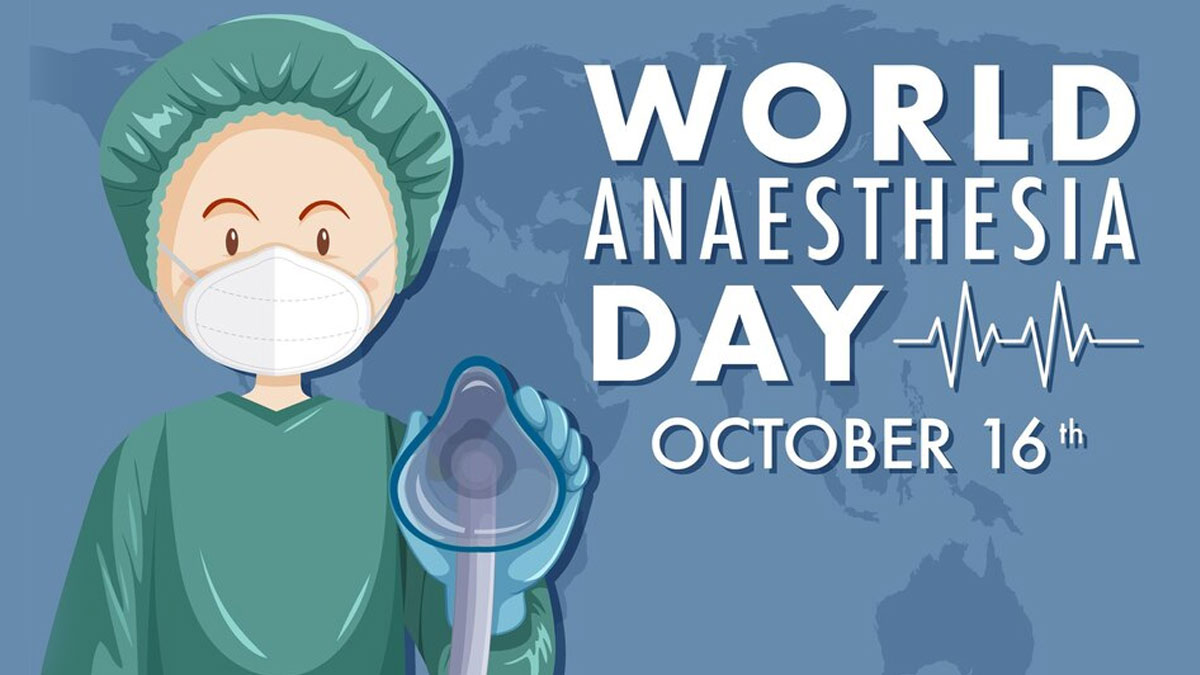
Every year on October 16th, the medical community observes World Anaesthesia Day, commemorating the day in 1846 when anesthesiologist Dr William TG Morton administered the first successful public demonstration of ether anaesthesia at Massachusetts General Hospital.
The day was first established by the World Federation of Societies of Anaesthesiologists. This year the theme is Anaesthesia and Cancer Care, with the purpose of creating awareness about the significance of anaesthesia in cancer treatments, to further strengthen anaesthesia services for cancer patients and to pay homage to anaesthesiologists around the globe.
Importance Of Anaesthesia In Cancer Care

Anaesthesia is not just about ensuring pain-free surgeries, it's a crucial component of comprehensive cancer treatment. Here are a few multifaceted contributions of anaesthesia that establish its importance in cancer care:
Pain Management
Cancer patients often undergo various invasive procedures, including biopsies, surgeries, and radiation therapy. Anesthesia ensures that patients do not have to experience pain during these treatments, and can focus on their recovery instead, and maintain their overall well-being.
Also Read: Epidural Anaesthesia, its Complications and Side-effects
Surgical Precision
Cancer surgeries require precision, especially when the cancer is present in delicate areas. Anesthesia ensures the patient remains completely still during the procedure, allowing surgeons to work with accuracy. This is vital for minimising damage to healthy tissues and achieving successful tumour removal.
Reduced Stress and Anxiety
A cancer diagnosis can be emotionally overwhelming. Anaesthesia helps patients manage their anxiety by providing a calm and controlled environment for surgery or other interventions. This is critical for both the patient's psychological well-being and the success of the procedure.
Facilitating Diagnostic Procedures

Cancer treatment can be painful, but so can the procedures that allow effective diagnosis of cancer. In some of these cases such as during bronchoscopy and endoscopy, anaesthesia allows doctors to obtain tissue samples for cancer staging without adding any burden on the patients. Anaesthesia ensures the patient remains comfortable and cooperative during these essential procedures.
Enhanced Recovery and Reduced Complications
The use of anaesthesia during surgery can lead to smoother recoveries and fewer post-operative complications. This is especially significant for cancer patients, whose immune systems may already be compromised due to the disease or its treatment.
Also Read: Can Anesthesia affect your heart?
Pain Management Beyond Surgery
In addition to pain management during surgery, anaesthesia specialists play a crucial role in postoperative pain management. They create customised pain management plans, including the use of nerve blocks to help patients recover comfortably.
Palliative Care
For patients with advanced cancer who may not undergo curative treatments, anaesthesia can be used to provide palliative care, or care that is provided to terminally ill patients. This helps in controlling symptoms and maintaining quality of life.
Research and Advancements
The ever-developing field of anaesthesia also contributes to cancer research by formulating innovative techniques and drugs that enhance the safety and effectiveness of anaesthesia during cancer care, further enabling advancements in the field of cancer care.
In the world of cancer care, anaesthesia truly stands as a silent but powerful partner, contributing to the success and well-being of countless patients. On World Anaesthesia Day, it's important to recognise and appreciate the tireless efforts of anesthesiologists and their indispensable role in cancer care. Their expertise ensures that cancer patients receive the best possible care, from diagnosis to treatment to recovery. They provide the comfort and support needed to face one of life's most challenging journeys. So, as we celebrate World Anaesthesia Day, let's extend our gratitude to these dedicated professionals who work diligently behind the scenes, making a significant impact on the lives of cancer patients and their families.
How we keep this article up to date:
We work with experts and keep a close eye on the latest in health and wellness. Whenever there is a new research or helpful information, we update our articles with accurate and useful advice.
Current Version